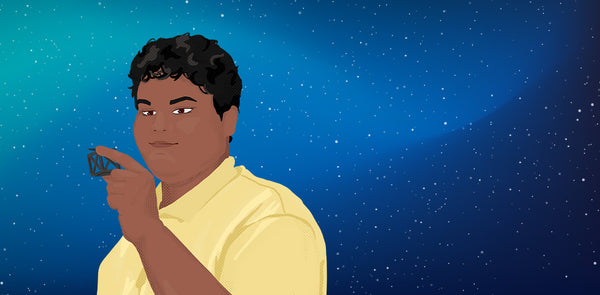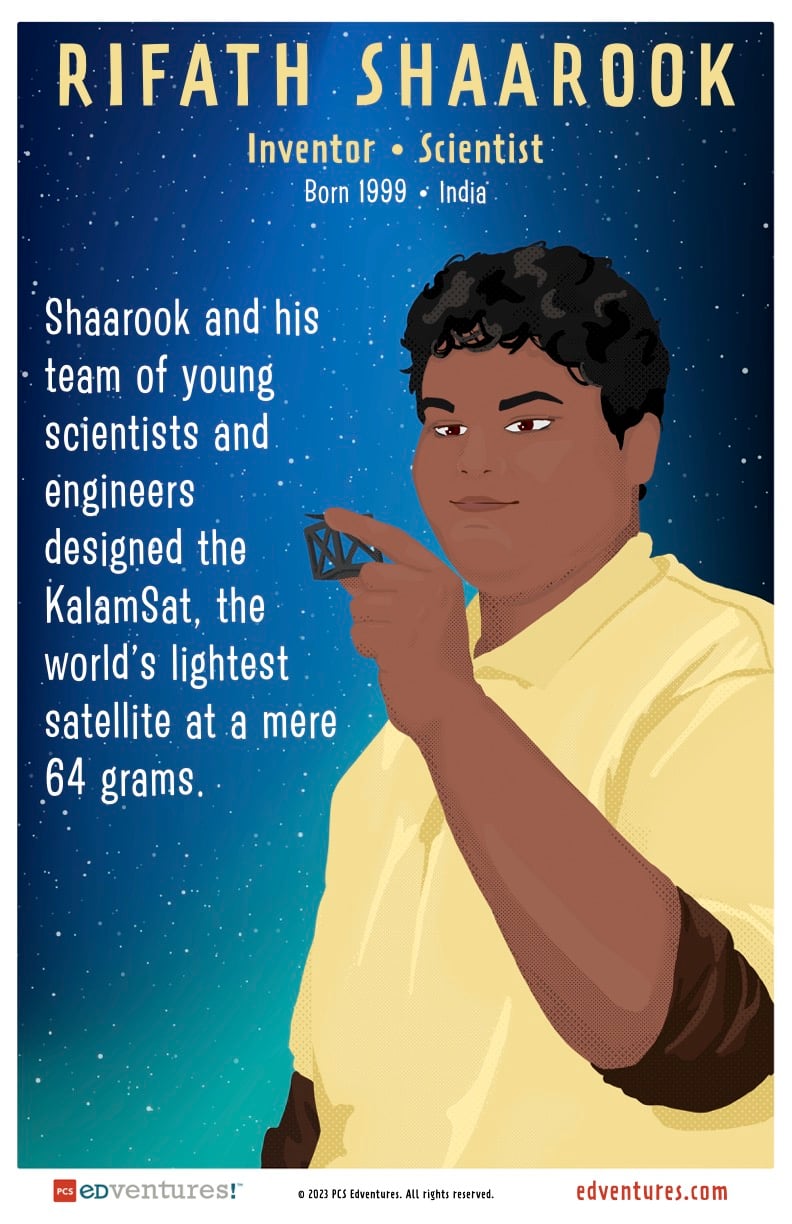
STEAM In History: Rifath Shaarook

STEAM requires patience and resilience, two qualities educators work hard to teach. But if learners struggle to embody these skills, what happens? Do we let them give up?
Time and again, teenage scientist Rifath Shaarook had a choice to make; succumb to frustration or find ways to regroup and rethink solutions. Ultimately, he created the world's lightest satellite, which NASA launched into space.
What strategies can educators use to motivate and assist learners frustrated by problem-solving?
Perseverance: Getting the Idea Off the Ground
“Is it that hard to send a satellite into space?” six-year-old Rifath Shaarook asked his father after watching a failed launch on TV. At that moment, Shaarook decided to design a satellite, promising his father a front-row seat when it soared into space.
They spent years discussing and planning. But when he was 10, Shaarook lost his greatest teacher and supporter. Though his father would not be around to witness the launch, he pushed on, determined to see his dream through. Shaarook took to the internet, learning all that he could. In time he became a Lead Scientist at Space Kidz India.
On their second satellite build, Shaarook and his team were frustrated by the high costs associated with sending their design into space. Dejected, they decided to walk away from the problem and decompress over a shared plate of gulab jamun, a sweet Indian treat. That’s when Shaarook had his groundbreaking idea. To keep costs low, they needed to design a small, lightweight, 3D-printed satellite the size of one gulab jamun. Thus, their project KalamSat, codenamed “GJ,” took off.

A student competition called Cubes In Space gave Shaarook the opportunity he’d been waiting for: a chance to design and test experiments on a real NASA mission. Just two hours before their satellite’s shipment deadline, KalamSat malfunctioned. Shaarook’s team shut down the system, but not for the reason you may think! Instead of giving up, they grabbed some fresh air and ice cream, knowing that stress makes it more difficult to solve problems. After cooling down, the team resumed work and discovered a small punctuation error in their code. They sent their design to NASA just in time (TEDx Talks, 2017).
KalamSat went on to be one of 80 projects selected out of over 86,000 submissions. The 1.5 inch printed cube launched on a sub-orbital flight on June 22, 2017, and Shaarook knows his father was proudly watching among the stars.
Tips for Teaching Learners to Self Regulate:
Thanks to his ability to step back and reassess how to accomplish his goal, Rifath Shaarook’s tiny satellite proved to be an enormous success.
Your learners can self-regulate too! Try these strategies to help them control their actions, feelings, and thoughts when faced with a challenge:
- Talk openly about ways to help learners cope with frustration and stress.
- Allow learners to step away from a problem and cool down.
- Celebrate learners’ diverse cultural experiences and provide opportunities to participate in cultural activities that broaden their view of the world. Who knows what may spark their next big idea!
- Encourage learners to reflect: What went well? What could I have done differently?
- Recognize both their strengths and weaknesses while praising their effort.
Check out STEM for SEL Support for more tips on developing learners’ social-emotional skills with STEAM instruction.
Click for free printable posters and trading cards about Rifath Shaarook and more STEAM role models to share with your learners!
STEAM Learning Experiences:
An engaging, STEM-based learning experience is the ideal way to teach social and emotional skills. Learners build strong relationships, develop self-management strategies and more all while having fun with peers.
Give learners the best of both social and academic instruction! Download a catalog and check out our free curriculum samples.
More STEM Resources:
Click the links below to learn about integrating SEL into your STEM instruction:
- Blog: Failure is Advantageous
- Blog: 4 Ways to Reinforce Resilience with STEM
- Freebie: STEAM in History Posters & Trading Cards
- Freebie: Executive Functioning Skills: Learner Checklists

Author: Jessica Ventre
An experienced elementary educator and science instructional coach, Jessica’s passion for STEM instruction and student-led learning is always at the forefront of her lessons and professional development workshops.








